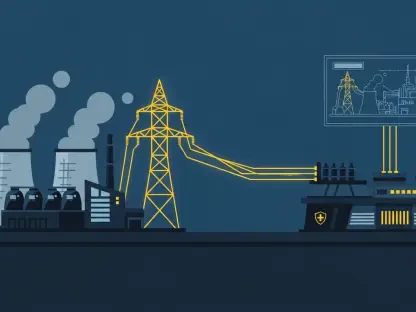The adoption of electric vehicles (EVs) represents a critical component of the broader transition towards sustainable transportation. Despite rapid technological advancements and significant increases in production, many consumers remain hesitant to fully embrace EVs, hindering this shift. Understanding the complex web of consumer attitudes, experiences, and misconceptions surrounding electric vehicles is essential for devising effective strategies to promote their widespread adoption. The resulting paradox of increased EV production versus tepid consumer uptake underscores the challenges faced and highlights the need for a multifaceted approach.
The Paradox of EV Production vs. Consumer Uptake
Recent research has exposed a startling paradox within the electric vehicle market: while production numbers have soared, consumer adoption rates have lagged significantly behind. This gap between supply and demand raises critical questions about the underlying drivers of consumer behavior that must be examined and addressed. One of the primary barriers identified is a combination of consumer hesitance and widespread misinformation about EVs. These factors collectively obstruct the broader adoption of electric vehicles, despite their clear environmental and economic benefits. Firsthand driving experiences play a crucial role in shaping consumer perceptions and driving decisions, often making or breaking the likelihood of an EV purchase.
Interestingly, studies conducted in China—widely considered a pivotal market for the global shift towards sustainable transport—have highlighted this dynamic. Positive driving experiences with EVs have been shown to significantly increase the chance of purchase, while negative encounters tend to deter potential buyers. This finding suggests that directly interacting with and experiencing EVs is a decisive factor in demystifying the technology and fostering consumer confidence. Effective strategies to promote adoption must therefore seek to enhance these experiences and mitigate the spread of misinformation that currently clouds public perception.
The Power of Past Experiences
A critical insight from consumer behavior studies in China reveals that past experiences with electric vehicles play a major role in influencing purchasing decisions. When consumers have positive firsthand encounters with EVs, their likelihood of making a purchase significantly increases. Conversely, negative experiences can severely dampen their enthusiasm and act as a deterrent. This highlights the importance of ensuring that initial interactions with EVs are positive, providing a solid foundation for wider acceptance. Demographic factors also play a part in shaping these tendencies. For instance, women, highly educated individuals, and urban residents tend to show a higher propensity to purchase EVs, particularly when they have had favorable past experiences.
This demographic insight suggests that targeted strategies may be needed to effectively address different population segments. These groups, being more receptive to positive EV experiences, can serve as early adopters and advocates for further spread within their communities. Additionally, understanding the unique concerns and motivations of various consumer segments can refine marketing and educational initiatives, making them more relatable and impactful. By capitalizing on the power of past experiences and demographic insights, stakeholders in the EV market can drive more nuanced and effective strategies to encourage adoption.
Bridging the Experience and Knowledge Gap
To overcome the adoption gap identified by research, it is essential to bridge the divide in consumer experiences and knowledge regarding electric vehicles. One of the most effective ways to do this is by increasing public test-driving events and launching comprehensive educational campaigns. These initiatives offer consumers the opportunity to experience EVs firsthand, thereby addressing many of the uncertainties and fears associated with this relatively new technology. Many potential buyers harbor concerns about issues such as “range anxiety,” the fear that an EV might not be able to cover long distances without frequent recharging. By providing tangible experiences and detailed information about EV capabilities, these fears can be alleviated.
Such strategies are instrumental in building consumer confidence, enabling individuals to make informed purchasing decisions based on factual knowledge and personal experience rather than misinformation or hearsay. Educational campaigns can further enhance this by offering insights into the long-term benefits of EV ownership, such as cost savings, environmental impact, and convenience. The goal is to create a well-informed consumer base that can appreciate the practicalities and advantages of electric vehicles, ultimately fostering a supportive environment for their broader adoption. Public initiatives should, therefore, focus on making EVs accessible and understandable to potential buyers, helping to transform curiosity and skepticism into informed enthusiasm and commitment.
Engaging Consumers Through Personal Norms and Experiences
Dr. Nikolas Thomopoulos, an Associate Professor in Transport and a co-author of the study on consumer behavior, underscores the necessity of engaging consumers through their own personal norms and past experiences. Tailoring strategies to resonate with individual values and daily realities can make electric vehicles a more relatable and practical choice for a broader audience. Changing perceptions through relatable narratives and tangible benefits rather than abstract concepts is crucial for increasing adoption rates. As consumer attitudes and behaviors are complex and multifaceted, understanding and addressing these nuances are vital for combating climate change and achieving broader sustainable development goals.
Psychological factors play a significant role in shaping decision-making processes, particularly when it comes to adopting new technologies such as electric vehicles. By tapping into these factors and leveraging positive past experiences, marketers and policymakers can drive a more profound and lasting shift in consumer behavior. This approach requires a deep understanding of the diverse motivators and hesitations that different consumer segments may have and crafting messages that speak directly to these concerns. Engaging consumers on a personal level can demystify EVs, making them an attractive and accessible option for a wider audience.
Actionable Insights for Stakeholders
The shift to electric vehicles (EVs) is a vital aspect of moving towards sustainable transportation. Despite rapid advancements in technology and substantial increases in EV production, many consumers are reluctant to fully adopt these vehicles, slowing down this transition. Understanding the intricate web of consumer attitudes, experiences, and misconceptions about electric vehicles is crucial for developing effective strategies to encourage their widespread acceptance. This paradox—where there’s a rise in EV production but lukewarm consumer adoption—highlights the challenges and calls for a comprehensive approach. Addressing concerns like range anxiety, charging infrastructure, and overall cost will be key in making EVs more appealing to the general public. Additionally, educating consumers about the environmental benefits and long-term savings associated with electric vehicles can help bridge the gap between production and consumer uptake, ultimately fostering a greener future.









